MS-PS4-1
Use mathematical representations to describe a simple model for waves that includes how the amplitude of a wave is related to the energy in a wave.
-
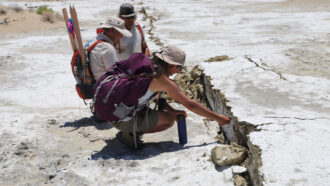 Earth
EarthScientists Say: Seismology
Seismology is the branch of science focused on seismic waves — vibrations that run through or around Earth.
-
 Physics
PhysicsCosmic timeline: What’s happened since the Big Bang
Energy, mass and the cosmos' structure evolved a lot over the past 13.82 billion years — much of it within just the first second.
By Trisha Muro -
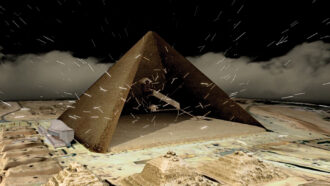 Physics
PhysicsMuons reveal the inner worlds of pyramids, volcanoes and more
Tracking these subatomic particles can uncover surprising hidden structures.
-
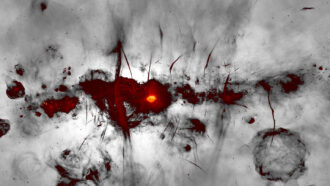 Space
SpaceWild art? No, it’s a radio image of the heart of our Milky Way
Eyelash-like radio filaments accent the brightest feature in this image — a supermassive black hole.
-
 Space
SpaceExplainer: Telescopes see light — and sometimes ancient history
Different kinds of telescopes on Earth and in space help us to see all wavelengths of light. Some can even peer billions of years back in time.
By Trisha Muro -
 Physics
PhysicsHere’s why ducklings swim in a row behind mom
Baby ducks save energy by surfing their mother’s waves, but only if they do it in an orderly line.
-
 Tech
TechA sense of touch could upgrade virtual reality, prosthetics and more
Scientists and engineers are trying to add touch to online shopping, virtual doctor appointments and artificial limbs.
-
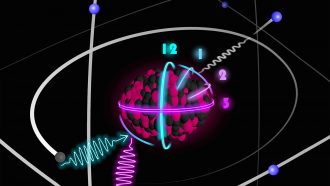 Physics
PhysicsNuclear clocks are nearly here
More precise clocks could improve technologies such as GPS and help scientists test major ideas in science.
-
 Space
SpaceLight from space has record-breaking energy
Hundreds of newly detected gamma rays hint at environments in the cosmos that accelerate particles to energy extremes.
-
 Tech
TechSleep-friendlier lighting is on the way
Chemists have created a new glowing material for LEDs. It should lessen how much near-bedtime lighting impairs your ability to nod off.
By Manasee Wagh -
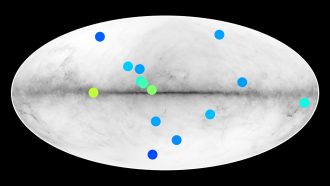 Space
SpaceStars made of antimatter could lurk in our galaxy
Fourteen sources of gamma rays in our galaxy look like they could be antistars — celestial bodies made of antimatter.
-
 Physics
PhysicsLight levitation might help explore Earth’s ‘ignorosphere’
A toy called a light mill inspired researchers to invent a new way to fly. They’re using light to levitate small nanotube-coated discs.